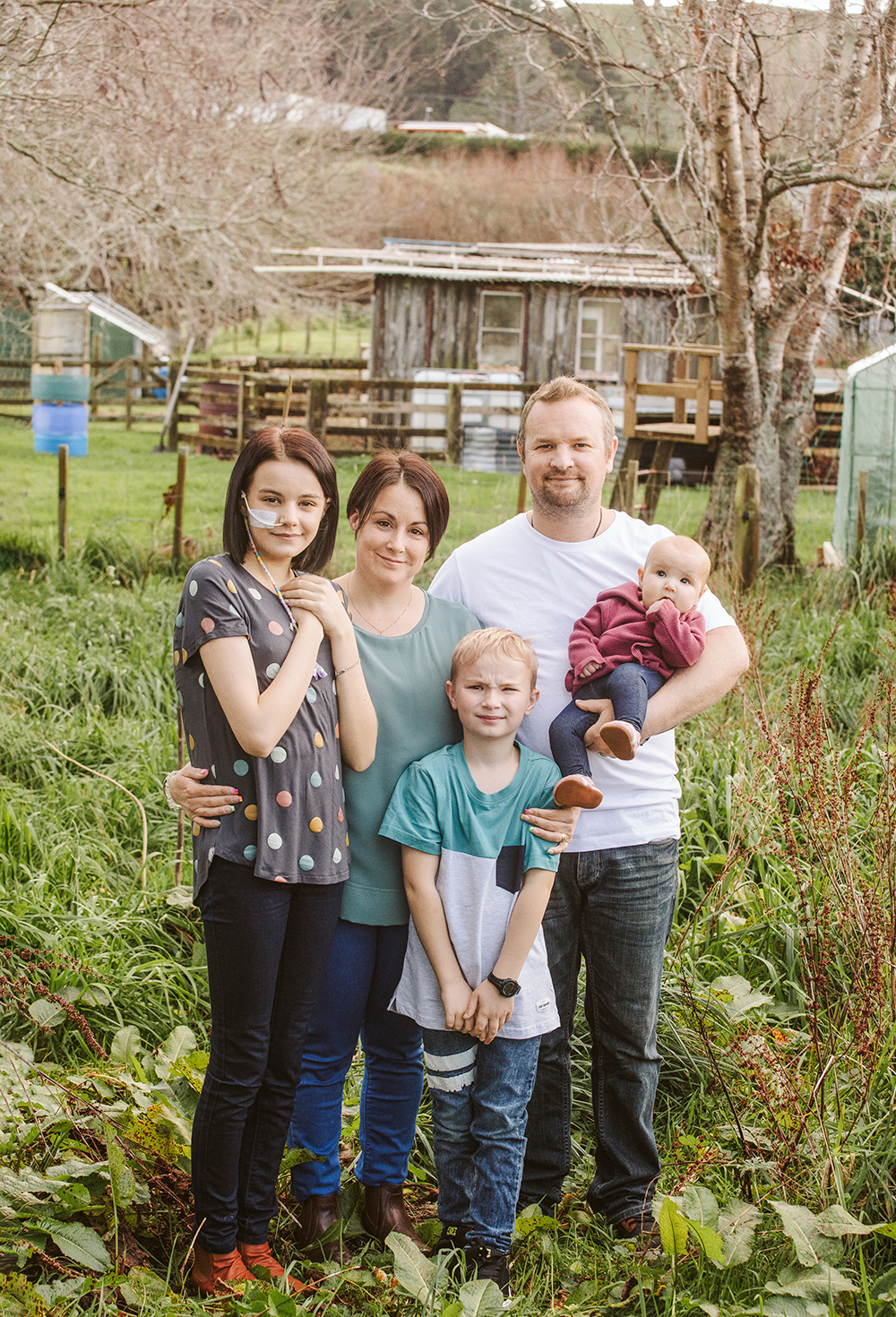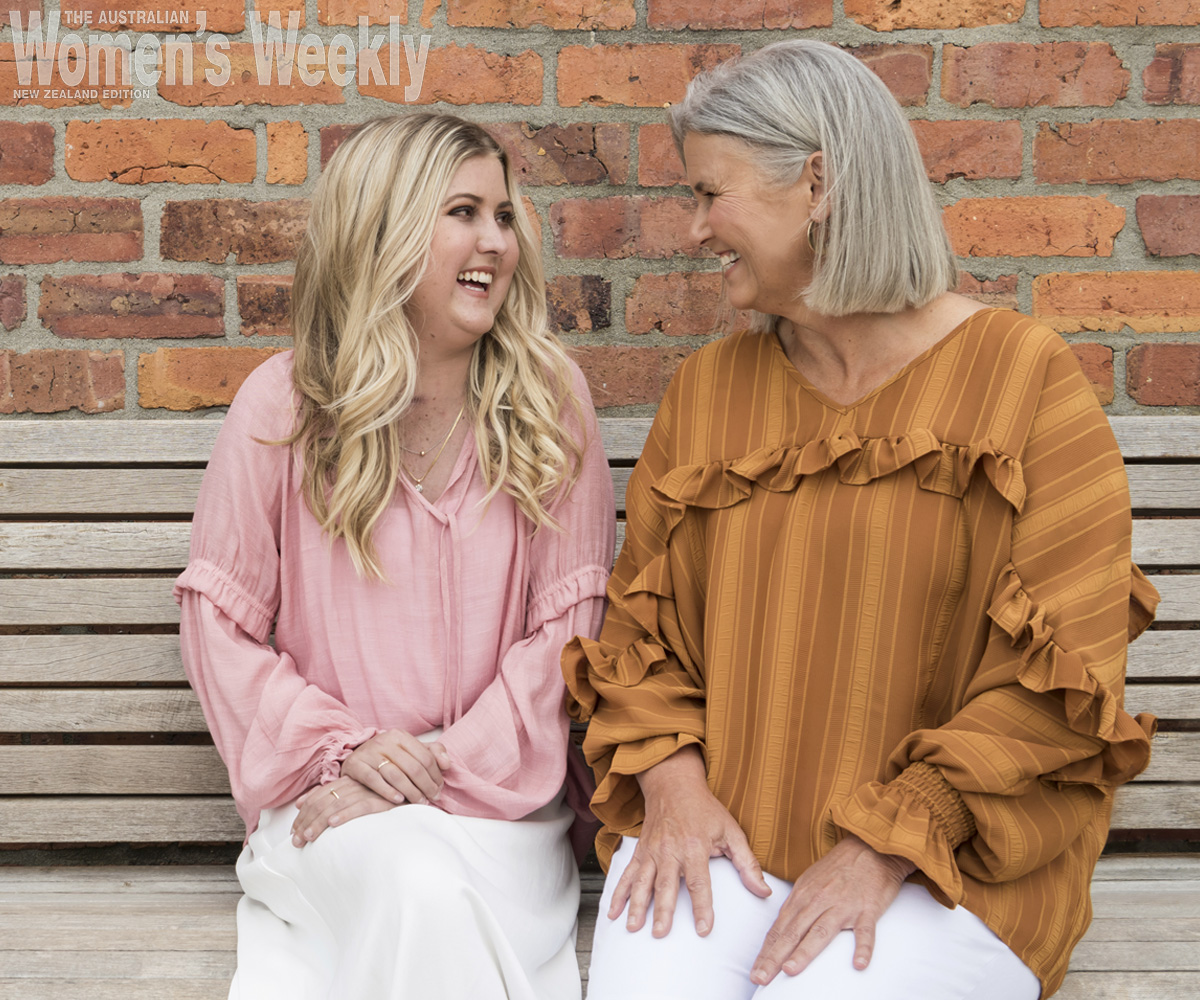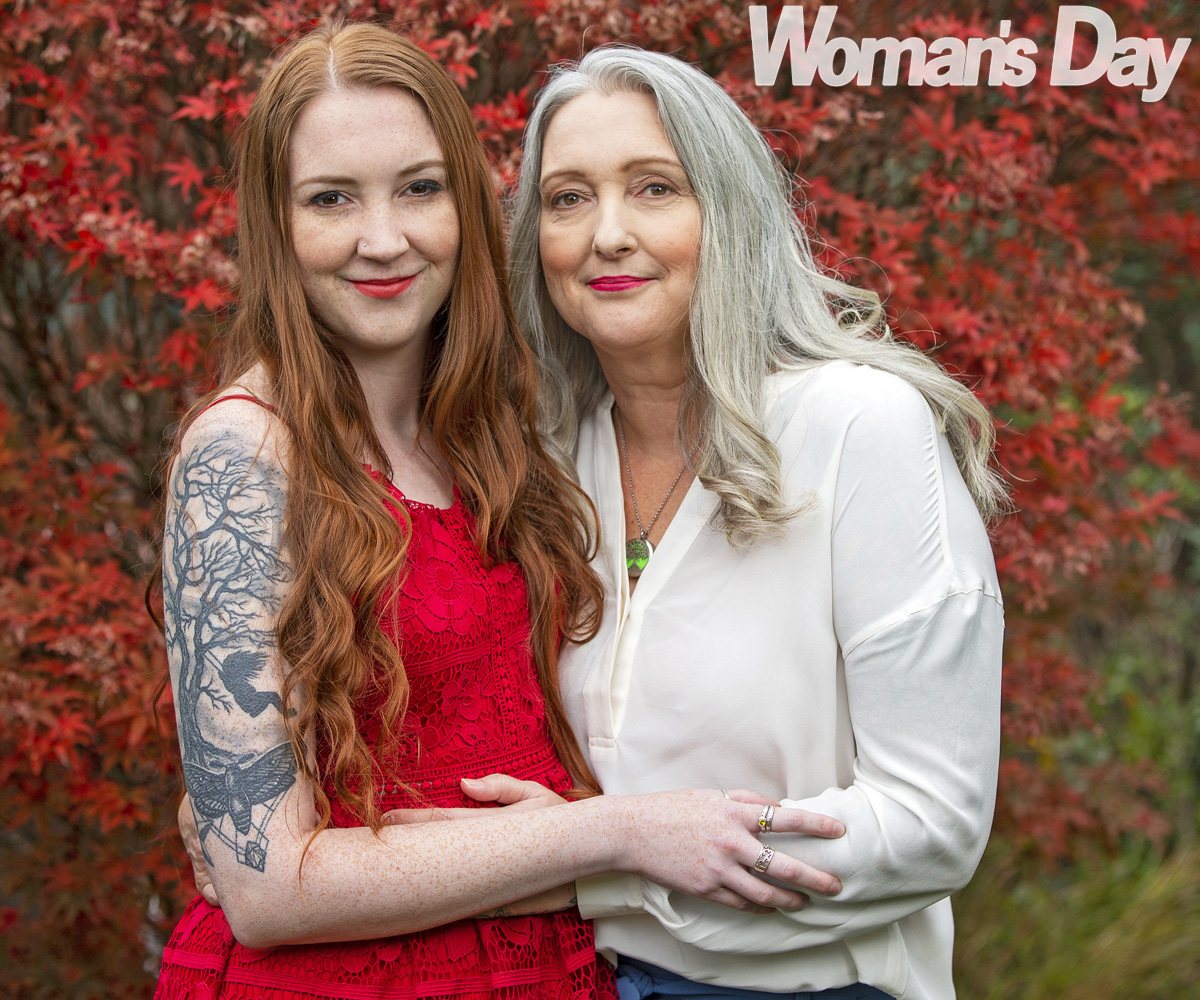For more than 500 cystic fibrosis (CF) sufferers in New Zealand, it’s somewhat of a “torture” knowing there are breakthrough medicines available that would change their lives but aren’t subsidised here.
One such drug, Trikafta, has been widely heralded for turning CF from a life-threatening condition – predominantly affecting the lungs and digestive system – to a manageable one. Trikafta has approval and is funded in 30 other countries, including Australia, the UK and Canada.
The estimated annual cost of Trikafta in New Zealand is $330,000, excluding GST. Pharmac board chair Steve Maharey has acknowledged the agency needs to work out “how we fund small groups of patients who have very high cost needs”.
The Weekly speaks to three families affected by CF, two of whom see living abroad as the only option for their future. They hope that by sharing their stories, people understand there is a need for urgent change to the way medicines are assessed and funded in Aotearoa.
‘Our Grace needs a transplant now’
Every time Jess Paterson sees an incoming call on her phone with an unknown number, her heart starts to race a little with the possibility it brings news that donor organs have been found for her teenage daughter Grace.
The bubbly 15-year-old was born with the genetic condition cystic fibrosis (CF)and in the past year, her health has declined “terribly”.
You can’t see the chronic illness. To look at Grace, you’d never know how sick she really is, points out her mum.
“She has lost eight kilograms since Christmas and doctors have said she needs a new liver and will benefit from a new pancreas,” says Jess, 36, from the family’s home in Stratford, Taranaki that she shares with husband Sean, 37, and their two other children, Max, nine, and five-month-old Elsie.
“Grace is in palliative care at home until we get that life-changing call for a transplant. So we have district nurses coming out every week to weigh her, but it’s not end-of-life care yet.
“We are just really frightened that she may not get the organs she needs in time. I’ve gotten to know many people over
the years that didn’t make it to transplant.”
But while the family is on tenterhooks, they remain hopeful. If they get a year down the track and Grace continues to steadily deteriorate, then Jess is keen to step in and give part of her liver as a “live donation”. But a full liver and pancreas is preferable.
In the meantime, Grace continues to attend school part-time, has a boyfriend, and with a career as a forensic scientist in her sights, the Year 10 student only attends the subjects she needs for credits to pursue that goal.
Doctors diagnosed Grace as a baby, after a bowel complication led to surgery at two days old.
“She was born with quite a prominent distention in her tummy,” recalls Jess. “We were flown up to Hamilton for bowel surgery, where she came out with a colostomy bag and was on life support for several days. We didn’t know CF had caused that until the results of the newborn Guthrie heel prick test came back two weeks later.”
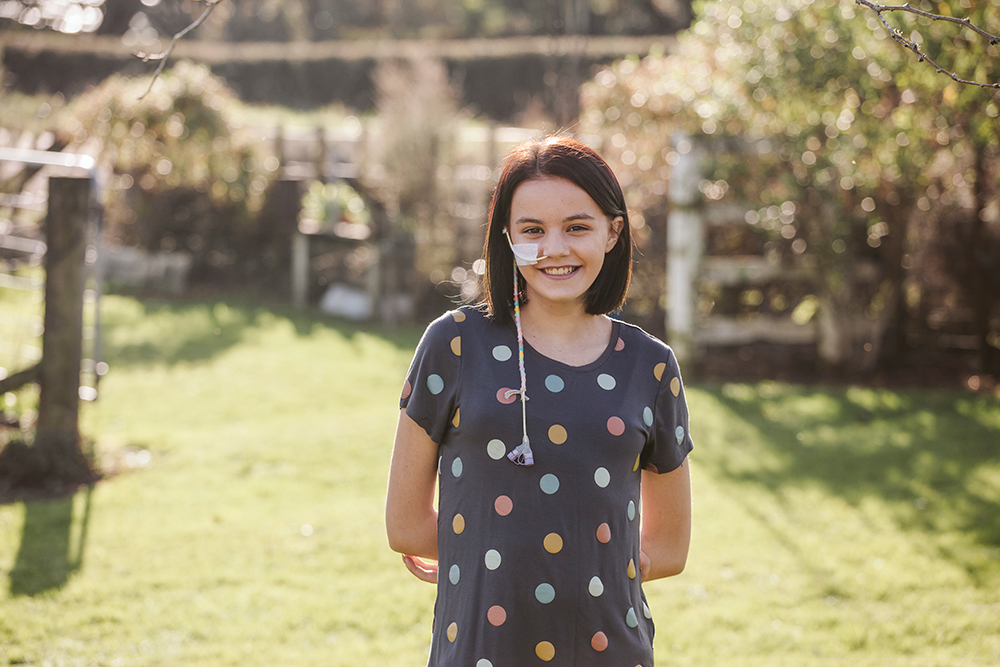
Diagnosed with CF as a baby, resilient teen Grace underwent surgery at just two days old.
Since then, Grace has been admitted to hospital at least once a year and developed CF liver disease at age seven, followed by CF-related diabetes at 10.
“She’s just got sicker and sicker, and now has portal hypertension, oesophagal varices (swollen veins) and varices in her stomach. Her spleen is also huge, chewing up all her platelets.
“But she’s really accepting of everything,” says the proud mum.
“I don’t know how she does it. Or perhaps being sick is just so normal for her now? Of course, she still does have her down days, but the only thing that really bugs her is having a naso-gastric tube [into her tummy], which she needs to help her put weight on.”
Jess and Sean have always been open and honest with Grace about her condition and life expectancy. They wonder if it’s the reason why their resilient daughter is so accepting, as others in the same situation might not be.
The couple – who used to be sharemilkers but now run their own contracting business – have tried to get her on “miracle CF drug” Trikafta.
However, because Grace still has 70 percent lung function, they were told their daughter was too well.
“Apparently, she’s at the point where she’s not sick enough to need it, but how sick is not sick enough to be eligible for it?” questions Jess.
“We have also explored getting the drug Lucaftor from Argentina, but it’s still so far out of reach for us to self-fund it at $1500 a week. That might be obtainable for some people, but for us we wouldn’t be able to eat!”
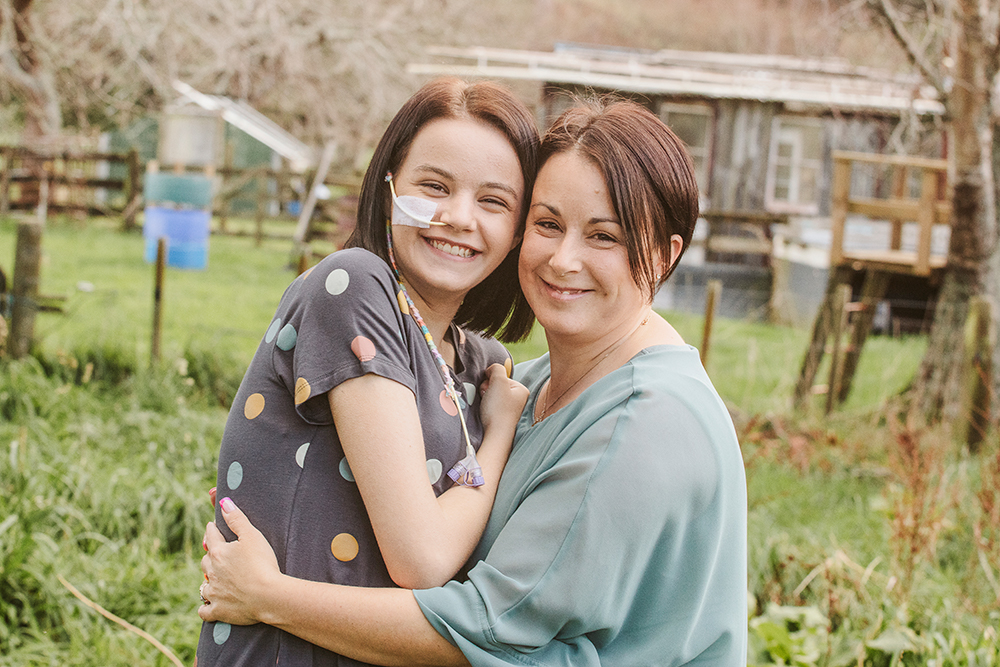
Jess is in awe of her girl’s positivity.
For now, their main focus is to get Grace a new liver and after the transplant, they will look at moving to Australia if Trikafta is still not publicly funded here.
“We’re not about to sit around and watch her die and have that guilt with us for the rest of our lives that we didn’t do anything,” explains the doting mum.
“We want to be able to say we tried everything we could. So we want to make sure we’re in the right country when she does need it.”
‘I saw my life coming into focus again’
Two years ago, CF sufferer Bella Powell made national headlines when, as a 17-year-old, she was gifted a three-month-supply of Trikafta, paid for by the late medical researcher Sir Bob Elliott.
The “miracle drug” helped Bella – who was on standby for a lung transplant – feel like she could properly breathe just six hours after taking her first dose.
“It was in that moment where I saw my life coming into focus again. I saw a future beyond the next minute, hour and day,”
she explains.
“Before Trikafta, I was alive but I couldn’t live… the simplest things in life like walking, laughing or holding a conversation were the hardest things to do.
“That is the true blessing of Trikafta. It allows people with CF to live fully without the burden of this disease.”
The talented teen now has access to the drug through the Managed Access Program that US company Vertex Pharmaceuticals offers, something that she is “so incredibly grateful” for.
“The process to get on to this programme was rigorous – there is so much criteria that comes into play – and required me to find resilience and patience within myself to not give up hope.”
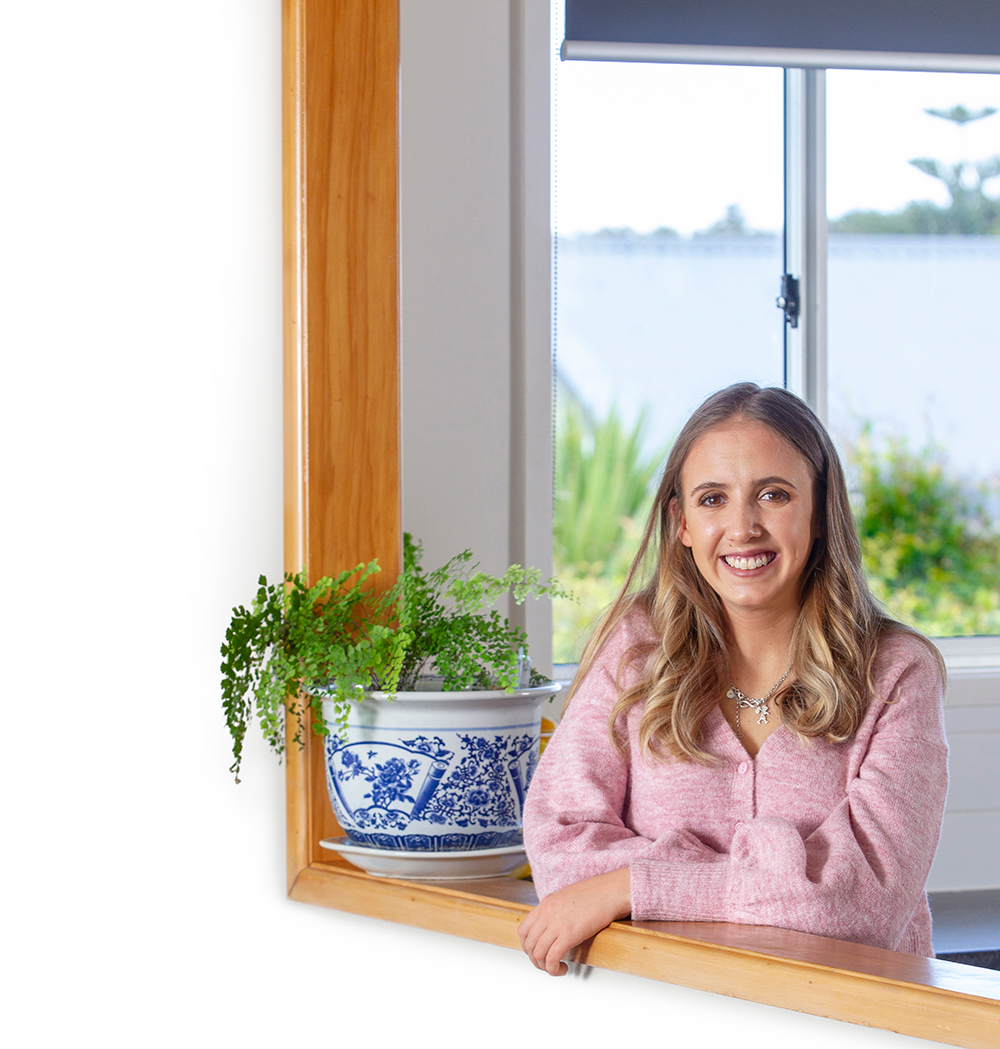
Moving from Auckland to study at Toi Whakaari: NZ Drama School in Wellington, has been “surreal” for Bella, 19. “It is the first time in my life where I can dream for a future and it is not hypothetical,” she says.
“I am the healthiest I have been in years, but moving out of home has definitely had its challenges, such as navigating Covid and all the colds that go through student halls without the support of my family.
“The past two years have been a huge rollercoaster and I have had to find myself again in this new body.”

Thanks to Trifakta, “I can dream for a future,” says Bella.
After graduating, Bella hopes to work in wardrobe or production management for stage shows and musicals. She also plans to continue to advocate for the lives of people with CF in New Zealand.
“Not all people with CF have been as lucky as I have. We shouldn’t have to live in a medical system where people’s lives aren’t valued and they have to rely on the generosity of others in order to pay to keep themselves alive for one more day.”
‘We had to leave NZ’
Last month, Ange and Matt Falepau gave up their home in Manawatu to live in a caravan in Brisbane so their young son Kairo – who has cystic fibrosis – could get on to life-changing medication funded in Australia.
The difficult decision to uproot their lives and say goodbye to their much-loved family, careers and culture is a sacrifice they believe is worth it for the health of their little boy.
“We definitely felt pushed to leave, like medical refugees, where we have to leave our country in order to keep our son alive,” says mum Ange.
“When we found out that Trikafta had been downgraded from a high priority on Pharmac’s funding list, we made up our minds – while sobbing in disbelief! – that we were no longer going to sit around and watch our son’s health deteriorate, when we had the option to make a difference for him.
“We believe in prevention, not treating. If we can go to another country and get something, anything, that can slow the progression of CF, then we will.”
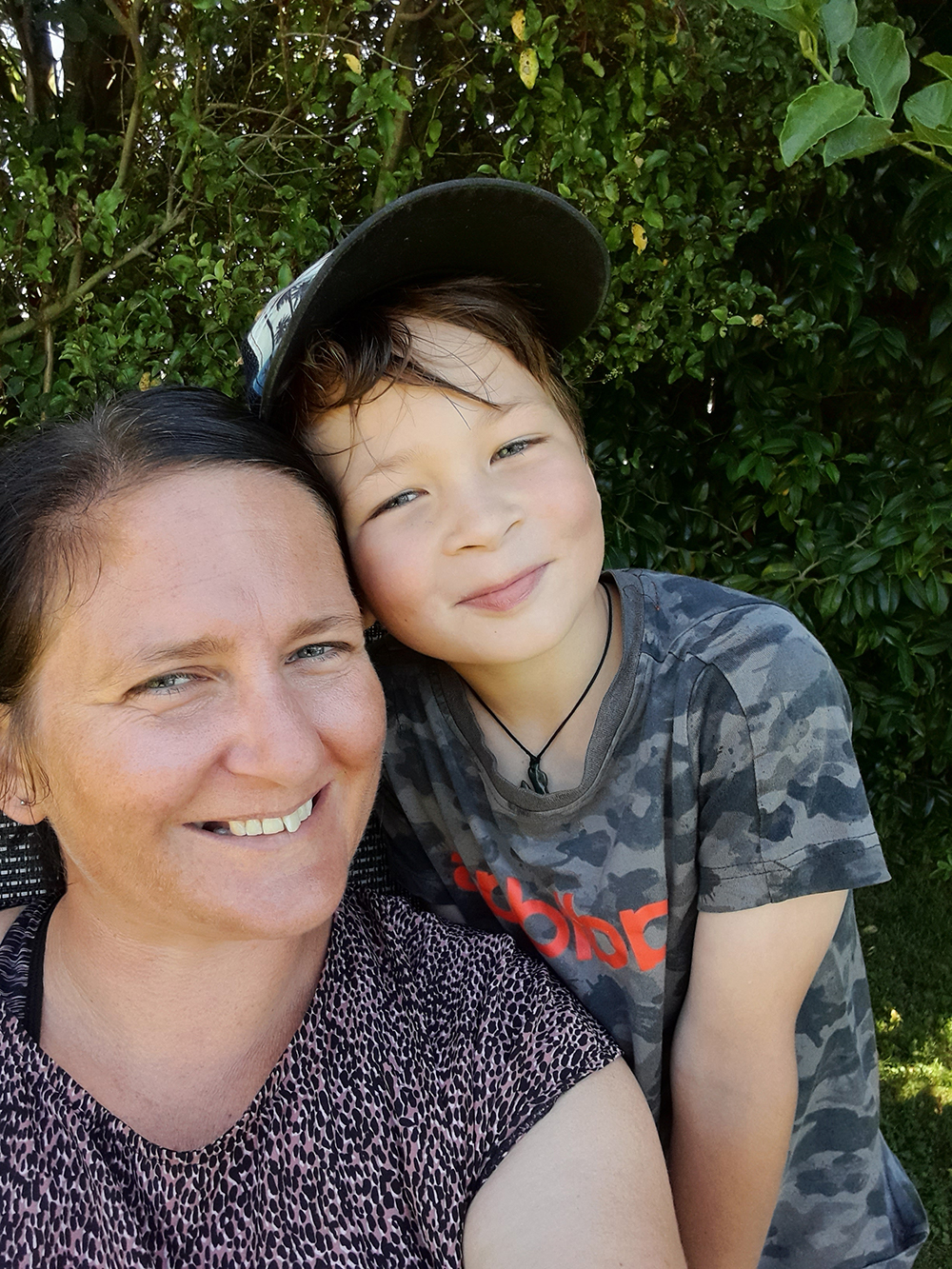
Despite feeling “pushed to leave, like medical refugees”, Ange knew it was the best option for Kairo.
While Kairo isn’t eligible for Trikafta in Australia yet because he’s only seven, Ange says the CF modulator drug Orkambi (which is also funded in Oz) is “better than nothing”. New medications, known as CFTR modulators, work on treating the underlying cause of CF by helping to correct the malfunctioning protein.
Although their adventure-loving son is a relatively “well” CF sufferer, as he hasn’t had an extended hospital stay for several years, he experiences ongoing digestive issues with his bowel and pancreas.
“You can imagine my anger after hearing the specialist say that even if Trikafta was funded in New Zealand, that due to its cost, it would only be available to those who are severely unwell and Kairo would not qualify,” explains dad Matt. “So, basically we’d have to wait until our son is potentially fighting for his life before he’s given this miracle drug.”
The family – including Kairo’s younger sister Mila, five – have been in Australia for three weeks when they chat to the Weekly.
Storeman and forklift driver Matt, 34, has already found a job, while Ange, 35, has interviews lined up for her role as a mental health support worker. They’re grateful, but understandably the transition has been hard.
“We gave up our house for a caravan on my family’s front lawn – crazy, I know! But we’re hoping to find a rental property soon.”
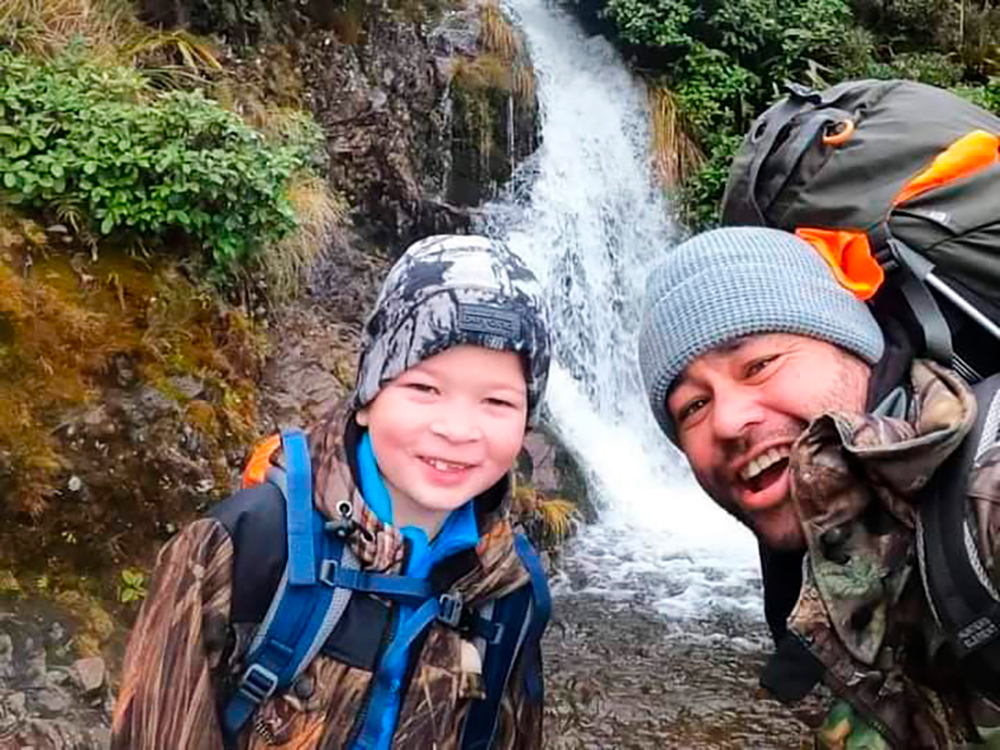
Dad Matt doesn’t regret moving the family to Oz.
The family sees themselves being permanently based in Brisbane and will not consider returning to NZ unless a modulator drug is publicly funded.
Adds Matt, “I love my home and will forever be a proud Māori, but with this move to Aussie, my only regret is we didn’t do it sooner.”
